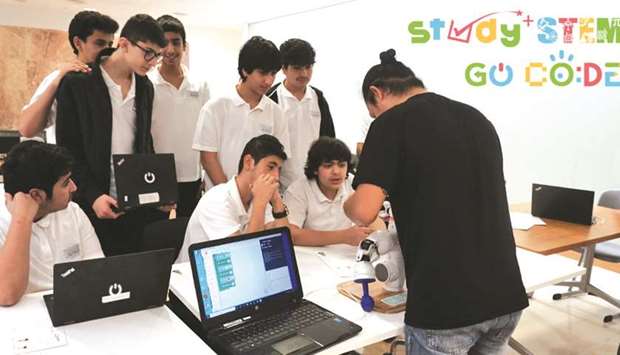“To all of my friends that have younger siblings who are going to college or school -- my number one piece of advice would be to learn how to program.” -- Mark Zuckerberg, CEO of Facebook and Instagram.
If you take a quick glance around, you will notice that we are surrounded by electronic devices each running uncountable numbers of software that run on code of some kind. In today’s world, everyone (including children) are consumers of technology, but only a few know how to create it. Have you ever wondered about what would happen if there were no computers especially at a time like this? With people asked to work from homes and 1.2bn children out of their traditional classrooms, the pandemic has reinforced the dependency on technology now more than ever.
With all these changes, coding literacy is argued to be one of the most important skills to learn in this digital age. Research states that 65% of the jobs which exist today won’t exist in the future. Be it the future of the print media industry, travel agencies, retail stores, and cashiers, all of which are doubtful due to the improved technology and switch to automation. Coding is, therefore, just as imperative to making a living in the modern world as having a good grasp of grammar, spelling, and numeracy.
So what exactly is coding and why is it dubbed as the language of the future? Coding or source code are a set of instructions that tell the computer what to do. It is because of the codes written by programmers that a computer is able to function and benefit humanity.
Simply put, coding empowers you to make technology work the way you want it and not the other way around.
“The collective aim is to inspire kids to think logically, analyse, create and develop their own games, websites and apps,” says Olan Santos, Coding Mentor at GoCode Gulf. “Exposing young learners to the world of coding at an early age provides them an added advantage as they develop a sense of curiosity and excitement to learn and create.”
At GoCode Gulf, young learners are encouraged to become creators and not just consumers of technology. They are exposed to both theoretical and practical knowledge of Scratch (block-coding), Python (text-based coding), web development and robotics.
With over a decade of experience in delivering tuition and revision support, StudyPlus has teamed up with GoCode and MagiKats UK to provide high-quality, interactive and fun after-school Mathematics, English and Coding classes teaching young learners (Key Stage 1 up to Key Stage 3) literacy, numeracy and programming. The learning approach supports the school curriculum and provides functional skills development to ensure that students improve their overall academic performance.

At GoCode Gulf, young learners are encouraged to become creators and not just consumers of technology.
